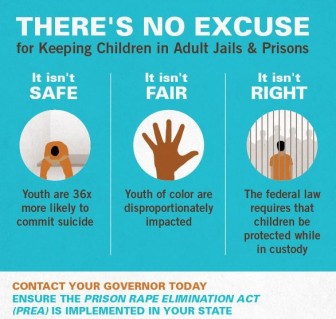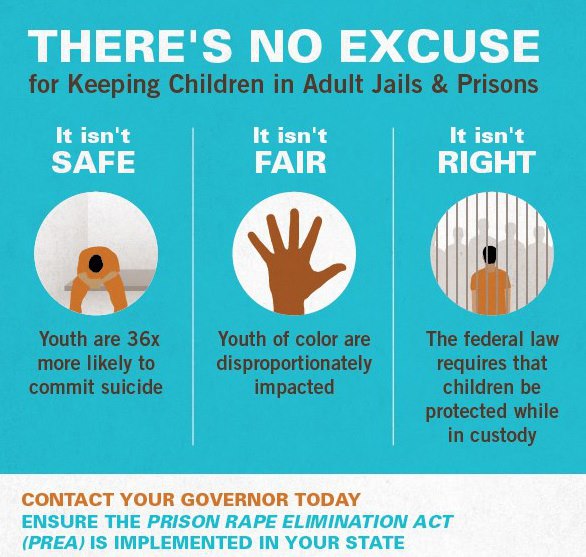
Infographic courtesy Campaign for Youth Justice
Ten years have passed since the Prison Rape Elimination Act (PREA), a federal law seeking to prevent and better respond to sexual abuse incidents in the nation’s detention and correctional facilities, was given congressional approval.
However, a decade later, states are just now being held responsible for insuring that their correctional facilities are in full compliance with the law. Next month, new regulations approved by the United States Department of Justice will pressure governors into conducting facility audits, or face penalties in the form of reduced federal funding for state-level justice programs.
A central component of the legislation is PREA Standard 115.14, which calls for the separation of “youthful inmates” - those under the age of 18 - from being housed alongside adult inmates in correctional facilities. Other elements of PREA require youthful inmates to be under “constant supervision” from facility personnel, as well as establish limitations on the utilization of “isolation” as a punishment for underage inmates.
Some advocacy groups are hopeful that the enforcement of PREA guidelines may ultimately result in states abolishing the practice of placing juvenile offenders in adult facilities altogether.
“The PREA standards will protect hundreds of thousands of kids prosecuted in the adult system every year, and get us one step closer to completely removing youth from adult jails and prisons,” Liz Ryan, CEO and President of the Campaign for Youth Justice, is quoted in a recent press release. “We hope that as states implement these important standards, they use this opportunity to reconsider the practice of trying youth as adults overall.”
Passed in 2003, the final rule was not published in the Federal Register until last year, with PREA officially going into effect on August 20, 2012. First audit cycles are scheduled to begin on August 20, 2013 - for jurisdictions to comply, at least a third of state facilities must be audited by August 20, 2014.
